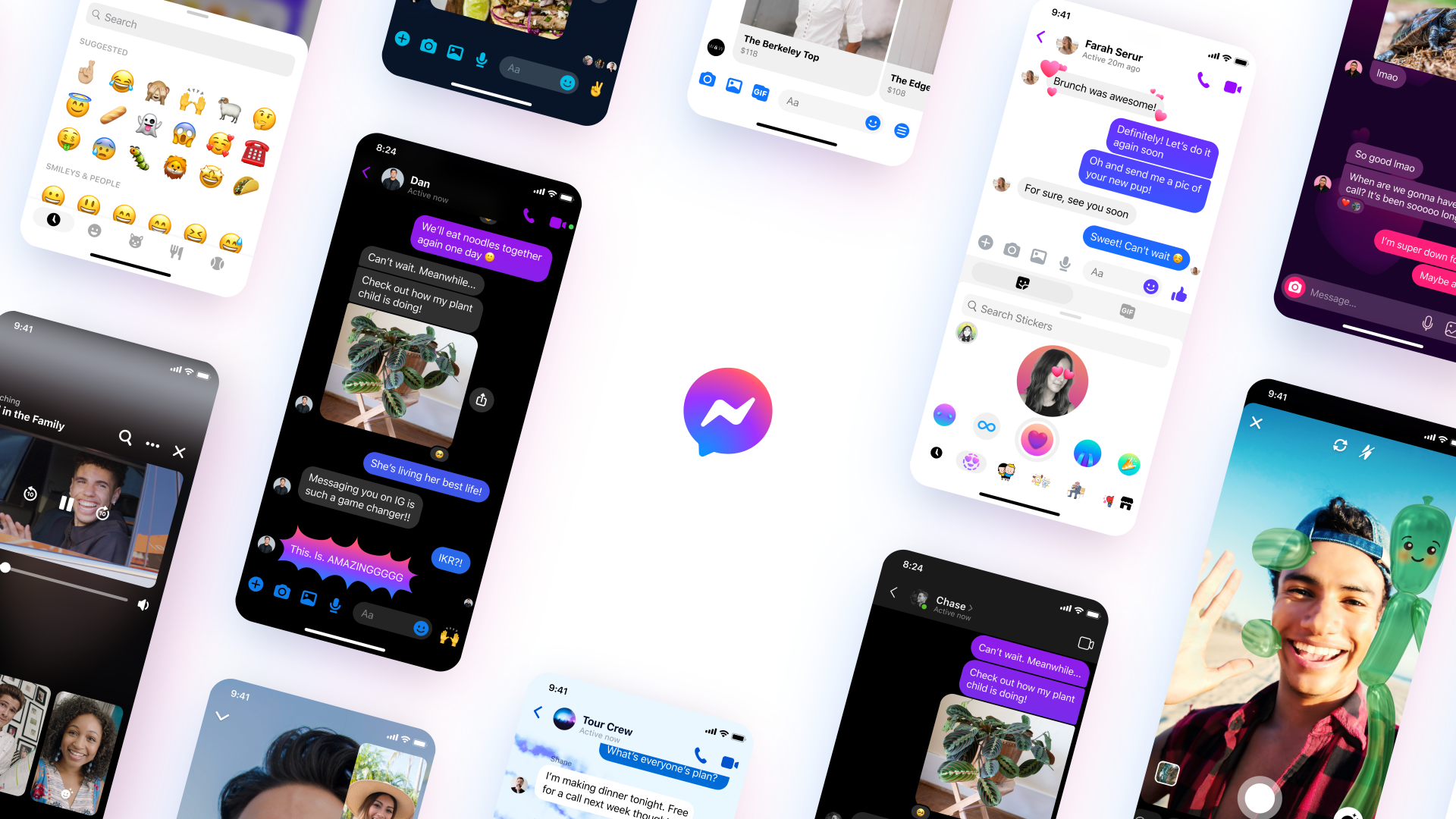Facebook Messenger gets redesigned with new themes, custom reactions, and logo
The change comes as Facebook is integrating Messenger and Instagram

Your support helps us to tell the story
From reproductive rights to climate change to Big Tech, The Independent is on the ground when the story is developing. Whether it's investigating the financials of Elon Musk's pro-Trump PAC or producing our latest documentary, 'The A Word', which shines a light on the American women fighting for reproductive rights, we know how important it is to parse out the facts from the messaging.
At such a critical moment in US history, we need reporters on the ground. Your donation allows us to keep sending journalists to speak to both sides of the story.
The Independent is trusted by Americans across the entire political spectrum. And unlike many other quality news outlets, we choose not to lock Americans out of our reporting and analysis with paywalls. We believe quality journalism should be available to everyone, paid for by those who can afford it.
Your support makes all the difference.Facebook has announced an update to its Messenger app, giving it a new logo, more chat themes, and custom reactions.
The update focuses on aesthetics; the Messenger app now has a purple-red gradient logo rather than the previous blue and white one, and Facebook is also bringing ‘love’ and ‘tie-dye’ themes to the platform.
Custom reactions, including a fire emoji, pizza, a party horn, the ‘100’ sign, and a unicorn are also being rolled out.
The social media giant’s latest look “reflects a shift to the future of messaging, a more dynamic, fun, and integrated way to stay connected to the people you’re close to”, the company wrote in a blog post.
It also comes as Facebook is integrating its Messenger and Instagram services.
Users on one platform will now be able to message users on the other; people can control where they receive messages and calls - in their chats, through message requests, or disable the feature entirely.
Instagram messages will receive multiple features already available to Messenger users, including a ‘vanish mode’ where messages will disappear after sending, similar to Snapchat, personalising messages with colours, and quick-forwarding.
The integration will be rolled out to “most users in North America soon”, the company says.
However, various commentators have pointed out that bringing the apps together could help improve the fortunes of Facebook amid criticism, and that it would make it harder for regulators to attempt to break the company into its various constituent apps.
Facebook is also making its other services more tightly-linked, such as its main social media app and its Oculus virtual reality products.
Starting from October, new users will be required to sign up with their Facebook account if they are using an Oculus headset for the first time.
Existing users will be offered the option to merge their current Oculus account with their Facebook one.
Full functionality of the Oculus headset will be inherently tied to a Facebook account from 2023.



Join our commenting forum
Join thought-provoking conversations, follow other Independent readers and see their replies
Comments